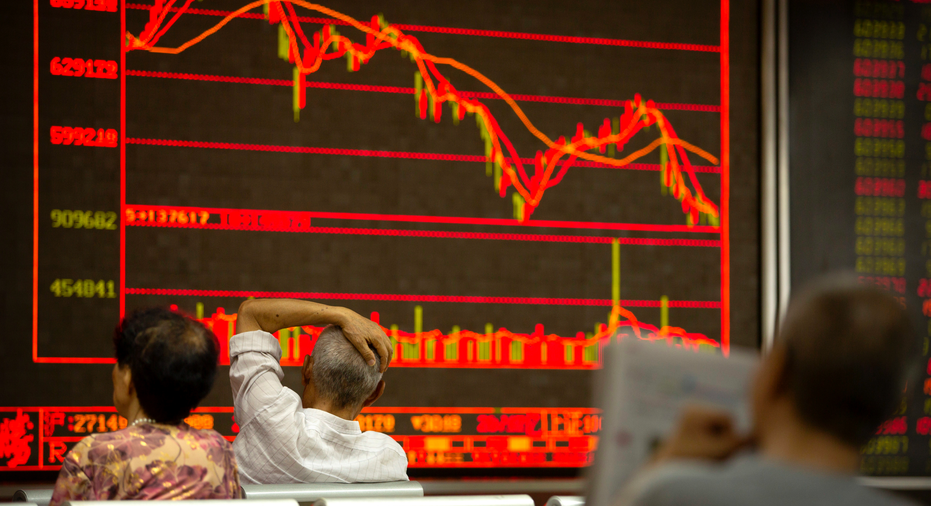World markets subdued as US, China exchange tariff blows

SEOUL, South Korea – Global markets were mixed Friday as the U.S. and China slapped each other with tariffs, with investors monitoring the rhetoric for signs of a further escalation in the trade dispute.
European stock markets edged down after modest gains in Asia. Britain's FTSE 100 fell 0.2 percent to 7,586 while France's CAC 40 was flat at 5,364. Germany's DAX gained less than 0.1 percent to 12,472. Futures augured small losses on Wall Street. S&P futures were down 0.2 percent while Dow futures fell 0.3 percent.
Asian markets erased earlier losses to finish mostly higher as the uncertainty ended over whether Washington would escalate tensions with Beijing. Upbeat economic data and overnight gains on U.S. stock markets helped temper concerns, though trading volume was light.
After falling as much as nearly 1 percent, China's Shanghai Composite Index finished 0.5 percent higher at 2,747.23. The Shanghai benchmark had languished recently, losing more than 12 percent over the past two weeks.
Hong Kong's Hang Seng index gained 0.5 percent to 28,315.62, while South Korea's Kospi added 0.7 percent to 2,272.87. But markets in Taiwan, Singapore and other Southeast Asian countries were lower.
Tokyo's Nikkei 225 jumped 1.1 percent to 21,788.13 in what appeared to be a technical rebound after a four-day losing streak. Australia's S&P-ASX 200 rose 0.9 percent to 6,272.30.
"The market actually is acting very calmly," said Francis Lun, chief executive of GEO Securities Ltd. in Hong Kong. "But of course, the talk of a trade war already depressed the market for about 1,000 points in the past month already."
As of Friday, the U.S. imposed a 25 percent tariff on $34 billion worth of Chinese imports.
China said it would have to make a "necessary counterattack" but gave no details. It has been expected to strike back with tariffs on a similar amount of U.S. exports including soybeans.
"The Trump administrations trade war is finally upon us," said Stephen Innes, Asia-Pacific head of trading at OANDA. "If this moves off the tit-for-tat battleground into a full out trade war, it will not only threaten market stability but could compromise relations between Washington and Beijing."
Benchmark U.S. crude was down 57 cents at $72.37 per barrel in electronic trading on the New York Mercantile Exchange. The contract fell $1.20 on Thursday. Brent crude, used to price international oils, lost 71 cents to $76.68 per barrel in London. It slid 85 cents on Thursday.
The dollar was roughly flat at 110.61 yen while the euro rose to $1.1717 from $1.1691.



















